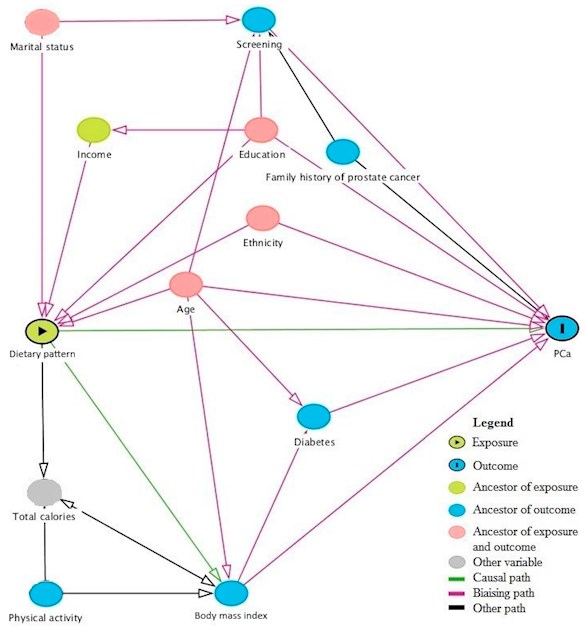New Canadian study linking diet and PCa. As with all dietary research, definitely not the final word. Full report compares/contrasts these results with those of other similar studies. In my own view, enough correlations eventually starts to = causation. As with all research, draw your own conclusions.
Dietary Patterns Are Associated with Risk of Prostate Cancer in a Population-Based Case-Control Study in Montreal, Canada
by Karine Trudeau 1,2, Marie-Claude Rousseau 1,2,3, Christine Barul 1, Ilona Csizmadi 4,5 [OrcID] and Marie-Élise Parent 1,2,3,* [OrcID]
1
Epidemiology and Biostatistics Unit, Centre Armand-Frappier Santé Biotechnologie, Institut National de la Recherche Scientifique, University of Quebec, Laval, QC H7V 1B7, Canada
2
School of Public Health, Department of Social and Preventive Medicine, University of Montreal, Montreal, QC H3N 1X9, Canada
3
University of Montreal Hospital Research Centre, Montreal, QC H2X 0A9, Canada
4
Department of Surgery, Cedars-Sinai Medical Center, Los Angeles, CA 90048, USA
5
Department of Community Health Sciences, Cumming School of Medicine, Calgary, AB T2N 4N1, Canada
*
Author to whom correspondence should be addressed.
Nutrients 2020, 12(7), 1907; doi.org/10.3390/nu12071907
Received: 4 June 2020 / Revised: 20 June 2020 / Accepted: 25 June 2020 / Published: 27 June 2020
(This article belongs to the Special Issue Nutrition and Prostate Cancer)
Abstract
This study describes the association between dietary patterns and prostate cancer (PCa) risk in a population-based case-control study conducted in Montreal, Canada (2005–2012). Cases (n = 1919) were histologically confirmed, aged ≤75 years. Concomitantly, controls (n = 1991) were randomly selected from the electoral list and frequency-matched to cases by age (±5 years). During face-to-face interviews, a 63-item food frequency questionnaire focusing on the two years before diagnosis/interview was administered. Three dietary patterns were identified from principal component analysis. Unconditional logistic regression estimated the association between dietary patterns and PCa, adjusting for age, ethnicity, education, family history, and timing of last PCa screening. When comparing scores in the highest vs. lowest quartiles, the Healthy Eating pattern was associated with a decreased risk of overall PCa (Odds ratio (OR) = 0.76, 95% confidence interval (CI) = 0.61, 0.93); this association was stronger for high-grade cancers (OR = 0.66, 95% CI = 0.48, 0.89). By contrast, the Western Sweet and Beverages pattern was associated with an elevated risk of overall PCa (OR = 1.35, 95% CI = 1.10, 1.66). The Western Salty and Alcohol pattern was not associated with PCa risk. These findings suggest that some dietary patterns influence PCa development. (emphasis added.)
Full Study is here:
mdpi.com/2072-6643/12/7/190...
Eat Well to Be/Stay Well - K9
